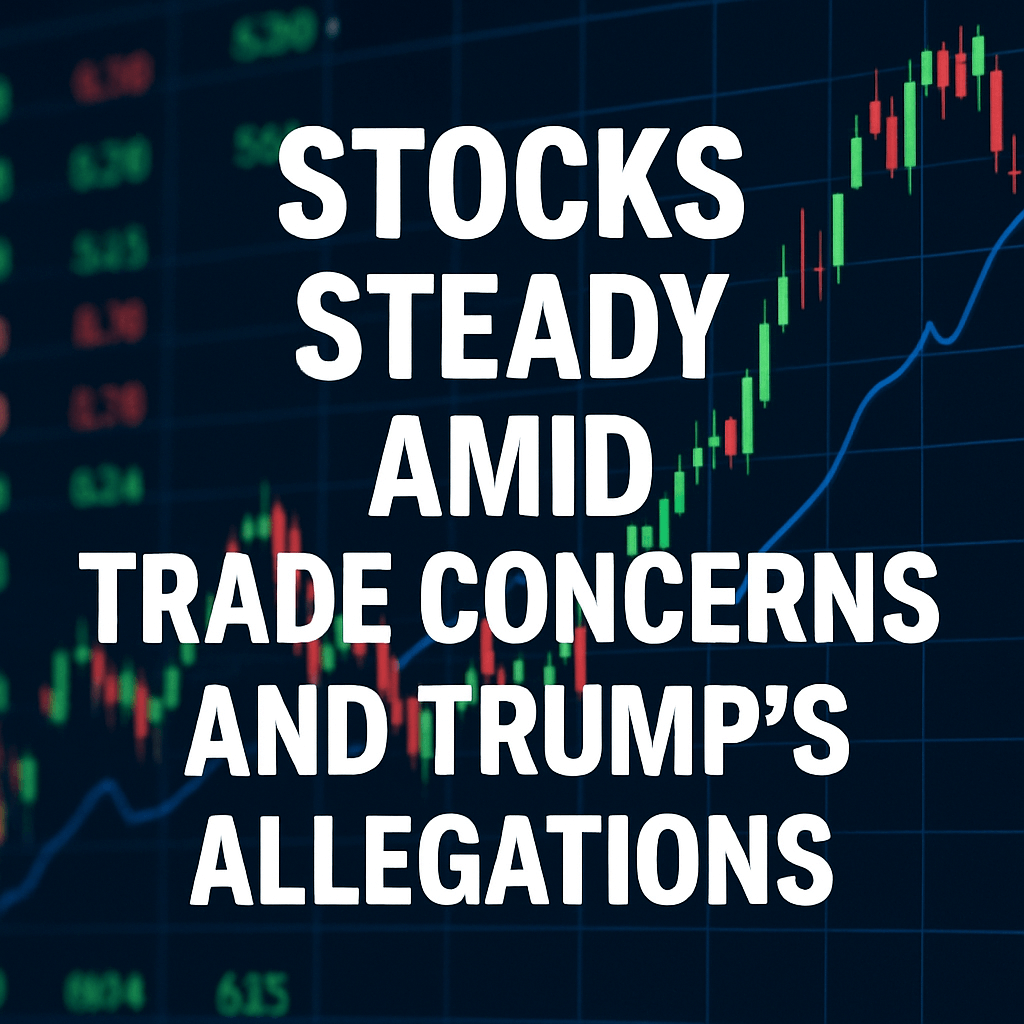Stocks Steady Amid Trade Concerns and Trump’s Allegations

The major stock indices concluded trading on Friday largely unchanged as uncertainty surrounding U.S.-China trade relations continued to unfold. This stagnation came in the wake of President Donald Trump’s assertions that China had violated a trade agreement reached over two weeks ago.
Market Performance Overview
The S&P 500 slipped by a marginal 0.02%, while the Nasdaq Composite saw a slightly steeper decline of 0.4%. In contrast, the Dow Jones Industrial Average managed a modest uptick of 0.1% as investors reacted to the mixed news cycle surrounding trade talks.
Trade Agreement Context
On Friday morning, Trump took to Truth Social—his self-founded social media platform—to declare that his administration had negotiated a “FAST DEAL” aimed at de-escalating the ongoing trade war with China. This agreement was noted to have been brokered by Treasury Secretary Scott Bessent during discussions held in Switzerland. The pact called for a 90-day suspension of U.S. tariffs on Chinese imports, accompanied by a reciprocal halt to similar tariffs from Beijing. Specifically, the U.S. agreed to reduce the tariffs imposed on Chinese goods from 145% to 30%, whereas China would reduce its retaliatory taxes from 125% to 10%.
Trump’s Assertions Sparks Market Reaction
Trump asserted that China had “TOTALLY VIOLATED ITS AGREEMENT,” although he did not substantiate this claim with evidence. This statement followed prior comments from Secretary Bessent, who had described ongoing negotiations as “a bit stalled” during an appearance on Fox News on Thursday evening. Such remarks contributed to the uncertain market sentiment and hindered potential growth.
Legal Challenges to Trump’s Tariff Authority
Adding complexity to this trade situation, recent court rulings have clouded Trump’s authority to impose tariffs. A pivotal decision by the U.S. Court of International Trade declared that Trump lacked the requisite authority to impose the extensive tariffs he had unveiled in early April, which he called “Liberation Day.” However, on the subsequent day, a federal appeals court ruled that, while the legal merits of many of Trump’s tariffs were still under review, many could remain in effect pending an upcoming hearing scheduled for June 5.
Expert Analysis and Market Implications
The continued uncertainty surrounding trade dynamics with China poses challenges for both market participants and policymakers. According to Dr. Ellen Zhu, a trade policy expert at the Brookings Institution, “Muddled communication from the administration could lead to volatility in the markets, as investors seek clarity on future trade relations.” Furthermore, Yu Jie, an analyst at Chatham House, noted that “these developments underscore the fragility of the current trade agreements and suggest that any retracement to tariffs could fuel further tensions and market fluctuations.”
Global Market Trends
Despite the complex trade landscape, stocks have seen a general upward trend since opening last Friday, with the S&P 500 registering an increase of approximately 2.2% over the past week—a timeframe during which markets were closed for Memorial Day on Monday. In a separate but related development, President Trump announced a potential delay on a set of 50% tariffs against the European Union, extending deadlines until July 9 to allow for further negotiations.
Looking Ahead
As markets continue to grapple with the implications of trade agreements and legal rulings, investors are advised to remain vigilant. The next round of hearings concerning tariffs could have significant impacts on both domestic and global market health. Analysts recommend closely monitoring developments from upcoming negotiations and statements from both the U.S. and Chinese officials.
Conclusion
Overall, the current economic climate remains influenced by an unpredictable trade environment, with key developments likely to dictate stock performance in the near future. As tensions persist, businesses and investors should prepare for continued fluctuations in response to geopolitical shifts.
About the Author: Ben Weiss is a crypto reporter at Fortune.